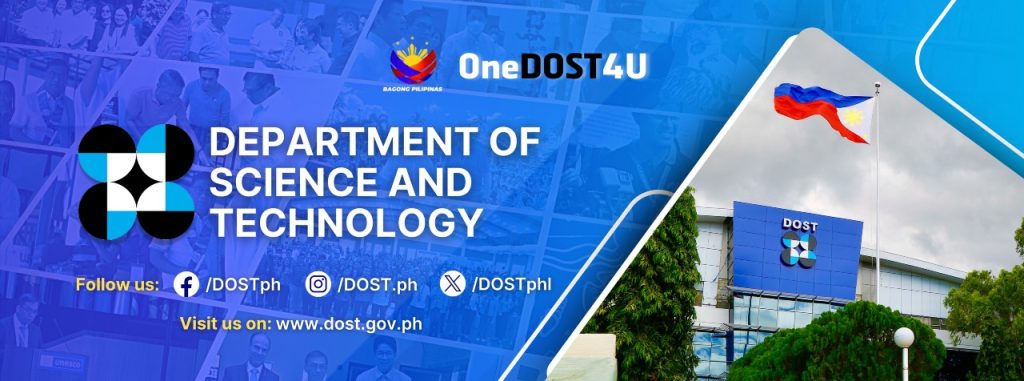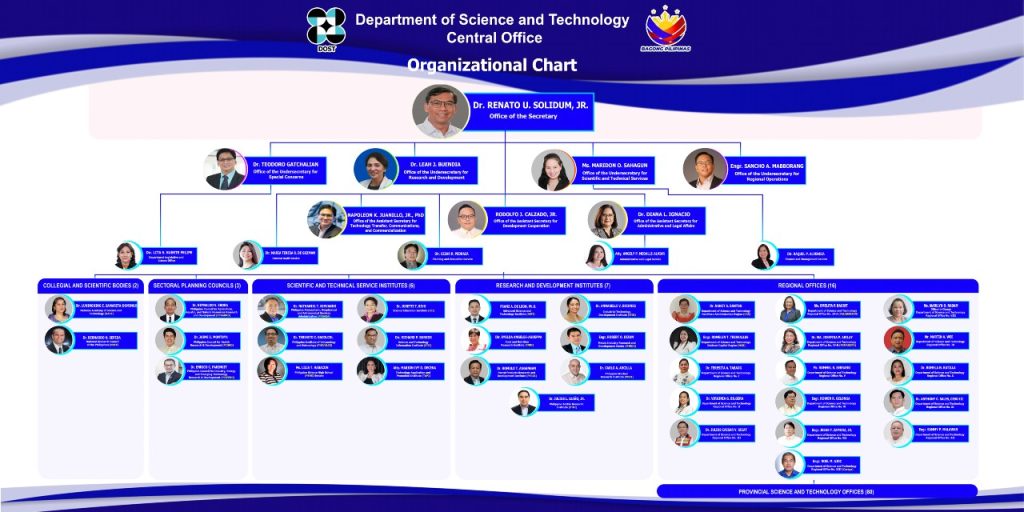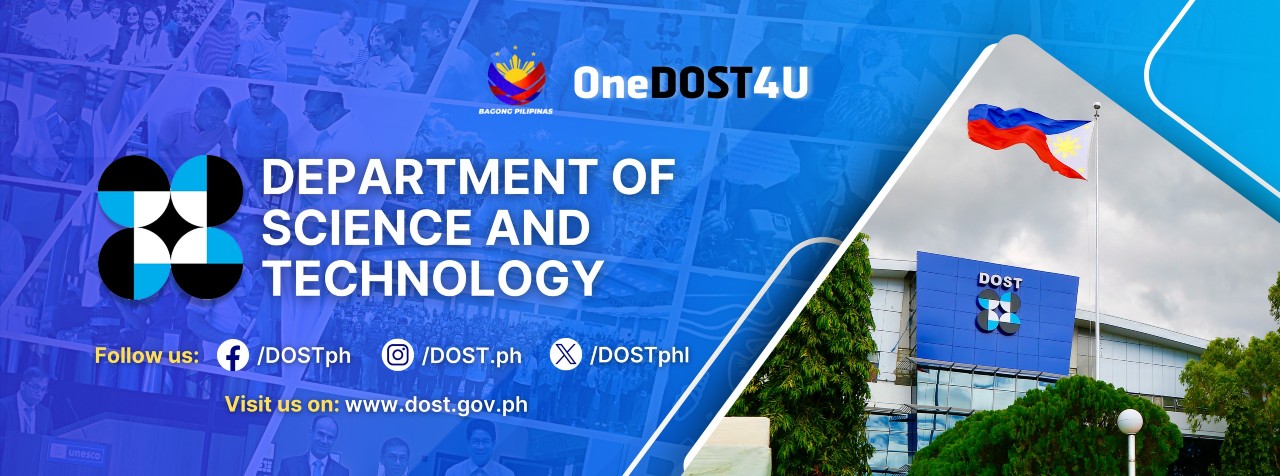The Department of Science and Technology (DOST) is a government agency focused on promoting scientific research, technological innovation, and development to enhance national progress. It also coordinates and supports various initiatives that improve the quality of life through advancements in sectors like agriculture, health, and education.
Understanding what DOST has to offer means getting to know the support it offers which directly benefits Filipinos by creating new opportunities and solutions to everyday challenges. For those seeking financial aid, DOST also offers scholarships and grants that help students and researchers pursue science and technology-related fields, contributing to both personal growth and national development.
What is DOST?
The DOST refers to the Department of Science and Technology, or better known in Filipino as the Kagawaran ng Agham at Teknolohiya, a government agency in the Philippines established to oversee scientific breakthroughs and advancement. Established on January 30, 1987, its main purpose is to coordinate science and technology projects and create policies that support national growth.

As an agency, the DOST mainly promotes research, technology development, and innovation in various fields, including agriculture and health. It also manages councils and institutes that focus on specific scientific areas to help enhance the quality of life for Filipinos.
History
The Department of Science and Technology (DOST) in the Philippines was initially established as the National Science and Development Board (NSDB) in 1958. It was restructured in 1981 as the National Science and Technology Authority (NSTA), expanding its role in shaping the country’s science and technology efforts. In 1987, it gained full cabinet status under Executive Order 128, further broadening its responsibilities to include supporting local scientific initiatives and fostering technological self-reliance. DOST is now the leading agency for directing and coordinating scientific activities with focus on leveraging science and technology for national development.
Logo

The DOST logo is a square made up of four interconnected circles, symbolizing the fundamental particles that are central to science and technology. The circular design suggests movement, representing progress driven by science and technology. At the center, the space created by the circles forms a four-pointed star, highlighting the importance of scientific creativity. The logo’s three colors—black, white, and blue—represent the unknown, truth and enlightenment, and progress, respectively. Each of the four circles stands for one of the key principles guiding DOST: Excellence, Relevance, Cooperation, and Cost-effectiveness.
Mission
“To direct, lead, and coordinate the country’s scientific, technological, and innovative efforts geared towards maximum economic and social benefits for the people.”
Vision
“DOST as the leading enabler and provider of science, technology, and innovation (STI) explicit solutions towards national development.”
Core Values
To guide its mission, the DOST officials and staff embraces these core values—SCIENCE:
- Service: DOST personnel are committed to delivering science and technology services with integrity, responsibility, and accountability, viewing public office as a public trust.
- Commitment: The agency is dedicated to providing the best science and technology-driven solutions to address the country’s needs, fostering knowledge-building and technological advancements.
- Innovation: DOST prioritizes innovation in its culture, policies, and services, driving continuous improvement and adaptation in all aspects of its work.
- Ethics: Upholding high ethical standards, the DOST ensures integrity and professionalism in all scientific practices and stages of work.
- Nurturance: The DOST fosters a supportive environment that cultivates scientific talent, encourages research, and promotes equitable access to opportunities and resources.
- Collaboration: Recognizing the value of partnerships, DOST actively collaborates with various stakeholders to tackle challenges and advance scientific progress.
- Excellence: DOST strives for excellence across all its functions, promoting a culture of achievement and high performance among its personnel and partners.
Mandate
EO No. 128 mandates the Department to do as follows:
“provide central direction, leadership and coordination of scientific and technological efforts and ensure that the results therefrom are geared and utilized in areas of maximum economic and social benefits for the people”.
Power and Functions
To effectively carry out its mandate, the DOST is granted the following power and function by the EO No. 128:
- National S&T Planning
- Research and Development
- Technology Development
- Engineering Support
- Technology Transfer
- Technological Services
- Information System
- Capability Building
- Public Awareness
- Policy and Technical Studies
Organizational Structure

The Department of Science and Technology (DOST) is the leading agency responsible for steering scientific and technological activities and policies to foster national development in the Philippines.
- It operates under the direction of the Secretary, who oversees multiple attached agencies, councils, and institutes to ensure the effective execution of its mandate.
- The Office of the Secretary, supported by three Undersecretaries and four Assistant Secretaries, supervises the implementation of science and technology initiatives across the nation.
- The DOST’s organizational structure also includes five key staff services, such as:
- Administration and Legal,
- Planning and Evaluation,
- Financial Management,
- Internal Audit, and
- Gender and Development.
Additionally, the department is also composed of 18 attached agencies, including the following:
- 3 sectoral planning councils:
- Philippine Council for Agriculture, Aquatic and Natural Resources Research and Development (PCAARRD)
- Philippine Council for Health Research and Development (PCHRD)
- Philippine Council for Industry, Energy and Emerging Technology Research and Development (PCIEERD)
- 7 research and development institutes:
- Advanced Science and Technology Institute (ASTI)
- Food and Nutrition Research Institute (FNRI)
- Forest Products Research and Development Institute (FPRDI)
- Industrial Technology Development Institute (ITDI)
- Metals Industry Research and Development Center (MIRDC)
- Philippine Nuclear Research Institute (PNRI)
- Philippine Textile Research Institute (PTRI)
- 6 agencies rendering science and technology-related services:
- Philippine Atmospheric, Geophysical and Astronomical Services Administration (PAGASA)
- Philippine Institute of Volcanology and Seismology (PHIVOLCS)
- Philippine Science High School (PSHSS)
- Science and Technology Information Institute (STII)
- Science Education Institute (SEI)
- Technology Application and Promotion Institute (TAPI)
- 2 collegial and scientific bodies:
- National Academy of Science and Technology (NAST)
- National Research Council of the Philippines (NRCP)
- 16 Regional Offices (ROs)
- 80 Provincial S&T Centers (PSTCs)
Benefits
The DOST provides various benefits aimed at advancing science and technology in the Philippines, including:
- Research funding and grants
- Scholarships for students in science and technology fields
- Technological services and support for industries
- Innovation programs and incubation for startups
- Public awareness and education initiatives in science and technology
Coverage
These benefits are designed to support a wide range of individuals and organizations, including:
- Students and researchers in science and technology
- Educational institutions and universities
- Private sector companies, especially in agriculture, industry, and technology
- S&T personnel in the public sector
- Public agencies and government bodies
- Local communities and general public
Programs & Projects
The DOST implements various programs and projects that focus on promoting innovation, ensuring biosafety, and facilitating research and development across multiple sectors.
1. Balik Scientist Program (BSP)
This program encourages Filipino scientists and experts from abroad to return to the Philippines to share their knowledge and skills, thereby boosting local research and development efforts.
2. Biosafety Clearing-House of the Philippines (BCH Pilipinas)
BCH Pilipinas serves as a platform for sharing information on living modified organisms, facilitating compliance with international biosafety protocols and enhancing public awareness about biotechnology.
3. DOST Biosafety Committee (DOST-BC)
This committee formulates policies and guidelines for biosafety in the Philippines, overseeing compliance with regulations related to biotechnology and ensuring the safe use of biological materials.
4. DOST Grants-In-Aid Program (DOST-GIA)
This program provides funding support for research projects that address national development priorities, promoting innovation and enhancing the capabilities of researchers and institutions.
There are two types of grants offered under DOST-GIA:
- The DOST-GIA Awards are offered only to exceptional Filipino residents with a Ph.D. in Science or Technology who have conducted research in these fields for at least five years.
- The DOST Outstanding Scientist Awards (OSA) honor individuals who have made significant contributions to science and technology in the Philippines. The OSA includes two categories:
- Young Scientists’ OSA (YSOA)
- Senior Scientists’ OSA (SSOA)
5. National Committee on Biosafety of the Philippines (NCBP)
The NCBP is responsible for developing and implementing biosafety policies and guidelines in the country, ensuring that all biotechnology activities adhere to safety standards and regulations.
Other services offered by the DOST include:
Central Office Services
- Application to the Balik Scientist Program (BSP): This program invites Filipino scientists from abroad to return to the Philippines to share their expertise and contribute to local research and development efforts.
- Certification of Science Foundations: This service provides official recognition for institutions that promote science education and research, ensuring they meet established standards.
- Application to the Grants-In-Aid (GIA) Program: This program offers funding for research projects that align with national development priorities, supporting initiatives that benefit the Filipino community.
- Application to the DOST-JSPS Joint Scientific Research Program: This initiative facilitates collaborative research between Filipino and Japanese scientists, promoting international scientific cooperation and knowledge exchange.
- Certification of Eligibility of Non-DOST System S&T Personnel under R.A. No. 8439: This certification recognizes the qualifications of non-DOST science and technology personnel, allowing them to access certain benefits and opportunities within the scientific community.
Attached Agencies and ROs
- Accreditation and Certification: DOST provides accreditation services to ensure that research institutions and laboratories meet quality and safety standards.
- S&T Scholarships: This program offers scholarships to students pursuing degrees in science and technology, fostering the next generation of Filipino scientists and researchers.
- DOST-Wide S&T Services: These services encompass various scientific and technological support initiatives available across the DOST network, including research assistance and consultancy.
- Regional Offices’ S&T Services: Regional offices provide localized support and services tailored to the specific needs of their communities, enhancing the impact of DOST initiatives at the grassroots level.
Video: DOST 1st Development Partners Forum
To learn more about the DOST initiatives, watch this video as DOST introduces its key partners in science, technology, and innovation for the 1st Development Partners Forum:
Summary
The DOST is indeed an important agency dedicated to advancing scientific and technological development. It offers a variety of services, including funding for research projects, scholarships, and programs that promote collaboration between local and international scientists, all aimed at fostering innovation and improving the quality of life for Filipinos.
Contact Information
To learn more about the DOST and its programs and services, you may reach out to them via the following:
Department of Science and Technology (DOST)
Main Office Address: DOST Central Office, General Santos Avenue, Brgy. Central Bicutan, Bicutan, Taguig City
Contact Number: (+632) 8837 2071
Email Address: email@dost.gov.ph
Official Website: https://www.dost.gov.ph/
Official Social Media Pages
Facebook: https://web.facebook.com/DOSTph?_rdc=1&_rdr
X: https://x.com/DOSTphl?t=l9MTD8e4KdDzVYlcuONOtg&s=09
